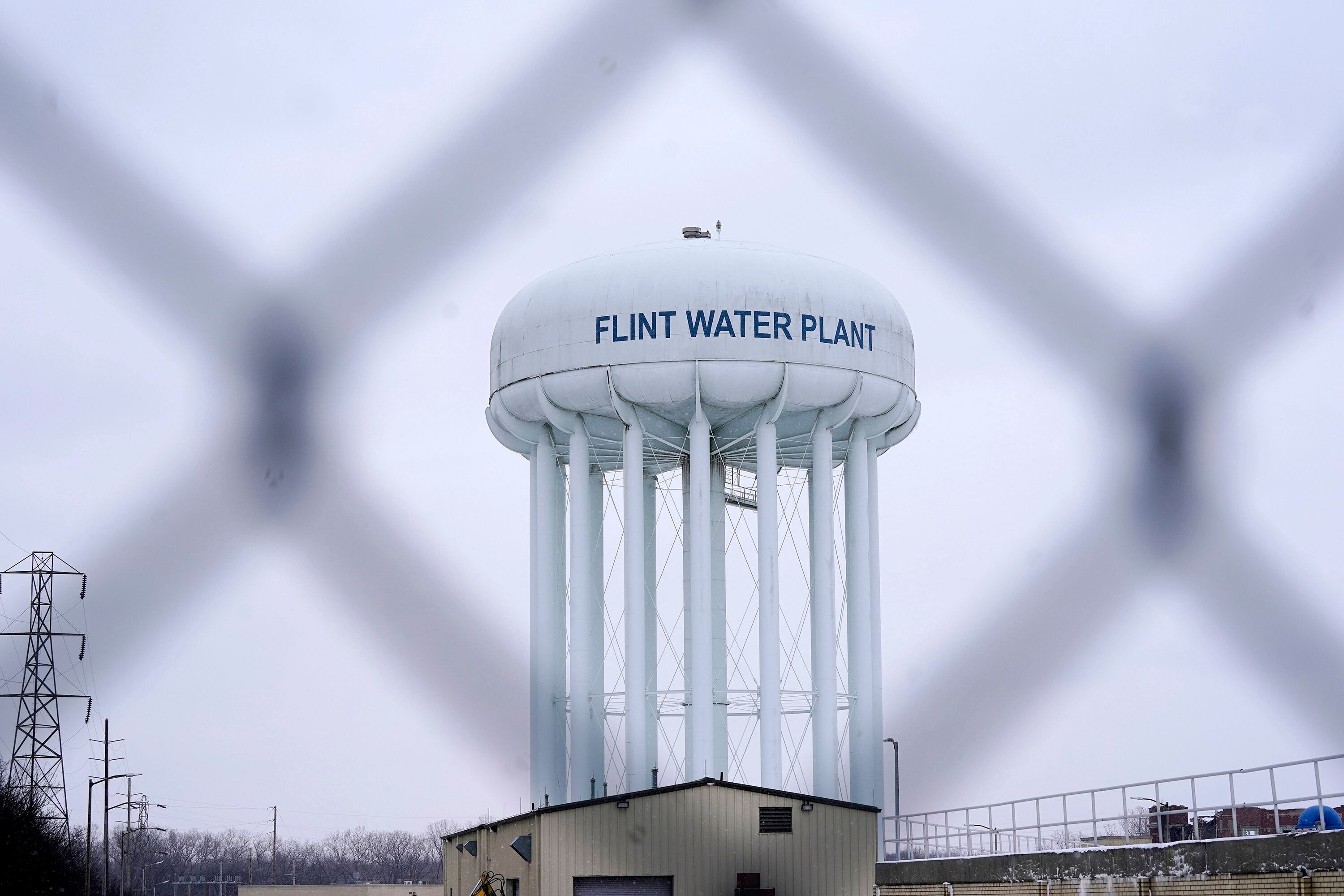A second contractor said Thursday that it has reached a $25 million settlement over its role in Flint, Michigan's lead-contaminated water scandal that officials say caused learning disabilities in scores of children and other medical problems among adults in the majority Black city.
The class-action litigation agreement includes payments of $1,500 for individual minors, according to Boston-based Veolia North America. The company says the agreement will resolve claims made on behalf of more than 45,000 Flint residents.
In July, the engineering firm Lockwood, Andrews & Newman said in a court filing that a confidential deal was reached with residents in federal court. Like Veolia North America, Lockwood, Andrews & Newman had been accused of being partially responsible for the water crisis in the city about 60 miles (95 kilometers) northwest of Detroit.
Flint, which was under state-appointed managers, used the Flint River for water in 2014-15, but the water wasn’t treated the same as water previously supplied by a Detroit-area provider. As a result, lead leached throughout the vast pipe system.
The state was sued because environmental regulators and other officials missed opportunities to fix Flint’s water problems during the lead crisis. Flint returned to a regional water supplier in the fall of 2015.
Doctors later would find high levels of lead in the blood of some children in Flint. Flint families sued Veolia North America and Lockwood, Andrews & Newman, accusing both firms of not doing enough to get Flint to treat the highly corrosive water or to urge a return to a regional water supplier.
Veolia North America had faced a trial this month in federal court, but that has been suspended pending final approval of its settlement agreement, the company said.
The issues for a jury would have included whether Veolia North America breached care and, if so, whether that breach prolonged the crisis. The company has said it was hired by the city to conduct a one-week assessment 10 months after Flint switched to Flint River water.
“VNA made good recommendations, including a crucial one on corrosion control, that would have helped the city had those recommendations not been almost entirely ignored by the responsible government officials,” the company said Thursday in a release. “VNA had no power over these decisions. VNA never operated the Flint Water Plant.”
During closing arguments in a 2022 case that ended in a mistrial, attorneys for the children argued that Veolia North America should be held 50% responsible for lead contamination and that Lockwood, Andrews & Newman should be held 25% responsible, with public officials making up the balance.
The mistrial was declared on claims made on behalf of four Flint children. Another trial is scheduled in October on behalf of seven other Flint children, according to their attorney, Corey Stern.
The settlement announced Thursday by Veolia North America does not affect the October trial, Stern said.













